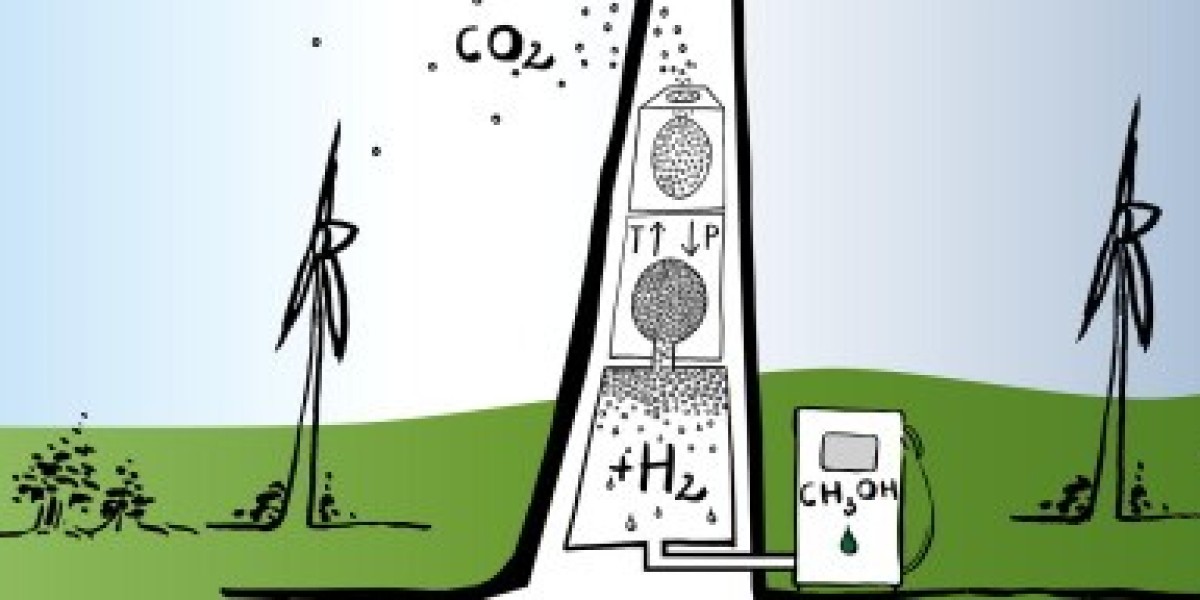Introduction to Methanol as an Alternative Fuel Source
Methanol, also known as wood alcohol, has long been used as a feedstock in various industrial applications but is now emerging as a potentially important alternative transportation fuel. Unlike ethanol which is primarily used as a gasoline additive or biodiesel which is blended into conventional diesel fuel, methanol can be used on its own or mixed with gasoline or diesel in vehicles.
Methanol's History and Production Methods
Historically, methanol has been produced through the steam reforming of natural gas, a process that produces carbon dioxide emissions. However, researchers are now focusing on producing methanol from renewable resources using carbon capture technologies. Two promising methods for generating renewable methanol are:
Biomass Gasification and Synthesis
One approach involves gasifying organic waste biomass sources like forestry residues and agriculture waste into a syngas mixture of hydrogen and carbon monoxide. This syngas can then be converted into methanol through catalytic synthesis. Germany's BMW and China's Shenhua Group have partnered on a project to produce methanol this way.
Direct Air Capture and Hydrogenation
Another emerging technology is direct air capture (DAC) which uses chemical reactions to extract carbon dioxide directly from the atmosphere. The captured CO2 can then be combined with hydrogen made from water electrolysis to produce methanol. This method potentially offers a truly carbon-negative fuel by removing existing CO2 from the air.
Methanol as a Transportation Fuel
Methanol's properties make it well-suited as a transportation fuel alternative. It is a liquid at ambient temperatures similar to gasoline and diesel, but it burns cleaner with fewer emissions. Methanol vehicles can be powered directly on M85 fuel, which is 85% methanol and 15% gasoline. Flexible fuel vehicles are also being developed that can operate on any ratio of methanol and gasoline.
Other benefits of methanol include its compatibility with existing fuel infrastructure since it can be transported and stored using similar equipment as conventional fuels. Engine modifications are needed but modest compared to adapting vehicles for other alternatives like hydrogen. Most importantly, methanol can be generated from diverse domestic resources and capable of displacing imported petroleum.
Potential Drawbacks and responses
While the prospect of renewable methanol is promising, some drawbacks still need to be addressed:
Toxicity Concerns:
Methanol is toxic to humans in its pure form although less hazardous than burning gasoline. Engine manufacturers are developing technologies to fully convert methanol to less toxic emissions in vehicle exhaust. Strict fuel standards and engineering controls can help ensure safety.
Infrastructure Build Out:
Adopting methanol will require expanding distribution infrastructure like fueling stations. Pilot projects demonstrate this challenge is not insurmountable given political and industry commitment over time. Methanol can also leverage existing gasoline and natural gas pipelines and terminals.
Higher Production Costs:
Generating renewable methanol is currently more expensive than extracting and refining fossil fuels. But production costs are decreasing as the technologies mature and scale. Also, accounting for health and climate damages from carbon emissions helps level the economic comparison to conventional options over the long-run.
The Future of Renewable Methanol
As concerns over energy security and climate change intensify, renewable fuels offer an viable path toward decarbonizing the transportation sector. Various groups are cooperating to advance methanol technologies and build demonstration projects around the world. For example, the Methanol Institute is working with governments, auto-makers and energy companies on codes and standards while projects in Iceland and Norway are refueling vehicles with reusable methanol at the pump.
With dedicated research and investment, reusable methanol production could be cost-competitive this decade. Pairing it with carbon capture systems offers perhaps the most scalable route to generating carbon-negative liquid fuels. As the toolkit for reducing transport emissions expands, methanol's role is sure to grow in providing a domestic, flexible alternative to conventional gasoline and diesel. Overall, reusable methanol presents promising opportunities to transition to a more sustainable fuel supply.
Search
- Friendly Websites www.wsisw.com www.bybit.com www.temu.com www.ebay.com www.adsy.com www.iherb.com www.whmcs.com www.secsers.com www.cambly.com www.binance.com www.displate.com www.magenet.com www.gainrock.com www.seoclerks.com www.aliexpress.com www.freelancer.com www.rankranger.com www.wehaveoffer.com www.qrmenutable.com www.coinpayments.net www.linksmanagement.com
Popular Posts










